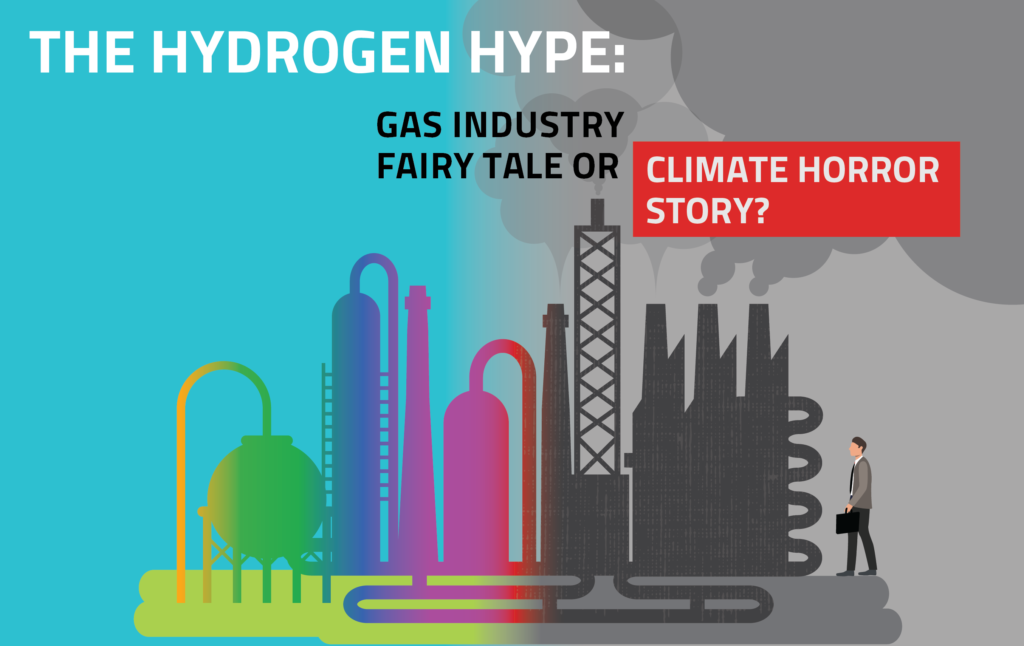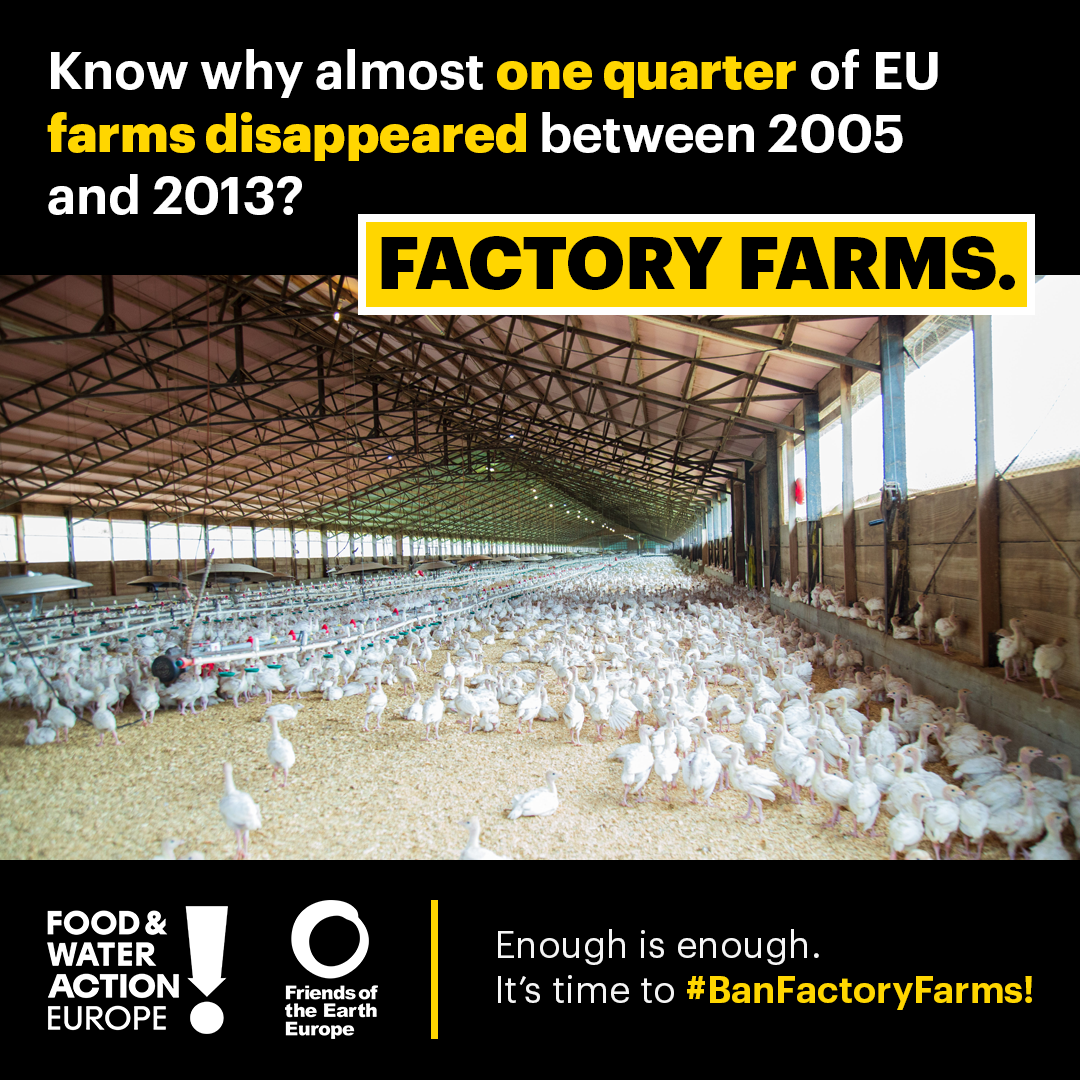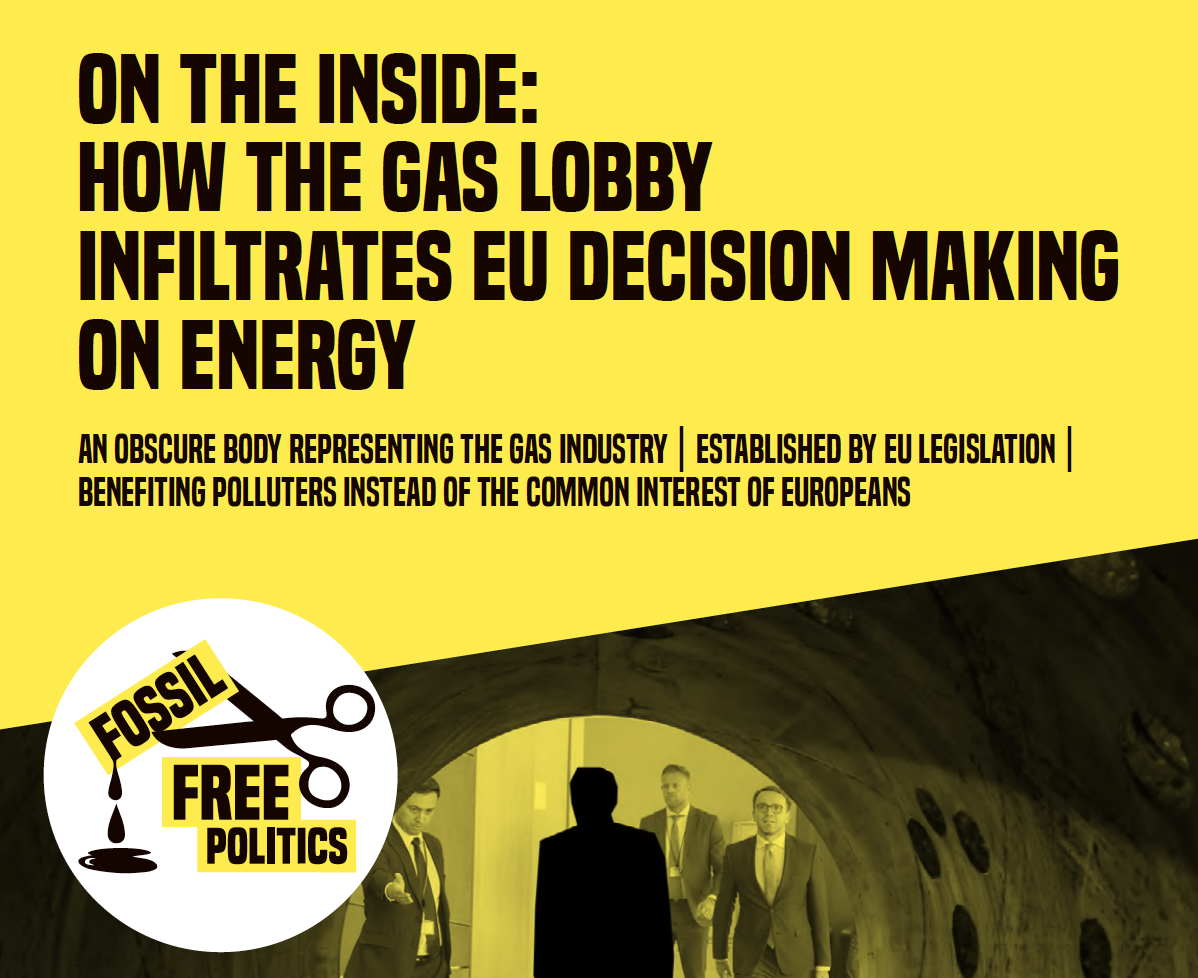The European Commission and its quest to let the gas industry write the book on hydrogen in Europe
Read the new Food & Water Action Europe, Corporate Europe Observatory and Re:Common Hydrogen Hype report here.

The European Commission and its quest to let the gas industry write the book on hydrogen in Europe
Read the new Food & Water Action Europe, Corporate Europe Observatory and Re:Common Hydrogen Hype report here.


The number of farms in the European Union has declined very rapidly in the past decades, largely as a result of disastrous agricultural and trade policies. At the same time, meat production in many EU countries is increasing, driven especially by exports. The remaining farms are becoming ever-larger with a lower diversity of animal breeds. This has seen a rise in factory farms, characterised by large numbers of animals being confined in crowded spaces with insufficient pastureland to feed the animals – meaning that feed has to be brought into the farm.
This briefing shows how the trans-European energy infrastructure (TEN-E) regulation has placed an obscure body advocating for vested gas industry interests at the heart of EU decision making on energy. 
The privileged role of the European Network of Transmission System Operators for Gas (ENTSO-G) – a body made up exclusively of gas industry interests, including epresentatives with links to major gas and oil companies such as Engie, Enagas and OMV – in decision-making on energy policy has benefited fossil fuels, not the ‘common interest’ of Europeans or the planet. ENTSO-G’s biased advice to the European Commission has helped its gas industry members benefit to the of over €1.1 billion euros in taxpayer subsidies.
Read the briefing here.
The petrochemical company Ineos is transforming into a dominant UK fossil fuel firm with oil and gas extraction, storage, processing and pipeline assets.
Since its 1998 inception, Ineos has rapidly assembled a sprawling corporate empire by snapping up chemical factories and companies.
But it also has garnered a chequered environmental record in its aggressive climb to become one of the world’s largest chemical conglomerates.
The petrochemical industry, plastics production and fracking are innately risky to the environment and public health. Methane leaks from oil and gas infra- structure are a leading contributor to global warming, and in the United States the fracking industry has been responsible for thousands of spills and accidents that have contaminated groundwater resources. Ineos is pushing to frack the UK, but its troubled environmental and safety record at its chemical manufacturing plants makes the company a risky bet for UK communities and the environment. The Ineos chemical plants have released millions of tonnes of the green- house gas carbon dioxide as well as other hazardous pollutants.
Find out the dangers and what should happen instead in our report.
The goal of this toolkit is to provide legal arguments to activists in the European Union (EU) against the exploration and extraction of hydrocarbons (e.g., shale gas/oil, tight gas/oil, coal-bed methane) by referring to relevant articles of existing and binding EU law. It explains in accessible language the most relevant Directives and Regulations that are applicable to the exploration and extraction of hydrocarbons. More precisely, the toolkit discusses the individual pieces of legislation along the hydraulic fracturing process, starting from prior assessments to liability. For each Directive/Regulation it discusses the goal and scope, the most relevant provisions, limitations, and the general line of argumentation that non-governmental organisations (NGOs) can use to challenge the exploration and extraction of hydrocarbons. Case law is discussed where relevant. Lastly, the toolkit establishes the procedural steps that citizens and/or organisations can take to contest a certain project on the EU level.
This toolkit focuses on regulation of the exploration and extraction of hydrocarbons such as shale gas/oil, tight gas/oil and coal-bed methane; however, it is important to note that some negative impacts (water and soil con- tamination, methane emissions, earthquakes from wastewater disposal, as well as public health impacts) can occur even if hydraulic fracturing is not being used as a stimulation method.
Find out more in, ‘Food & Water Europe’s Hydrocarbon Toolkit.’
For the past decade, the United States has pursued a failed experiment in natural gas extraction known as hydraulic fracturing, or fracking.
The fossil fuel industry touts fracking as a revolutionary technology that could deliver huge volumes of cheap, clean energy. But the fracking boom has been an environmental catastrophe in the United States.
The private and secretive chemical company Ineos has been leading the charge to bring this environmentally destructive method to the United Kingdom (UK) and mainland Europe.
However, the fracking “revolution” that Ineos promotes is a return to the past, where corporate executives profit from environmentally destructive extraction and the generation of dirty energy. In reality, fracked gas is incompatible with European Union (EU) and United Kingdom (UK) climate objectives, the Paris Agreement obligations and the need to act quickly to tackle climate change.
Find out more in, ‘Chemical Billionaire’s Bid for Fossil Fuel Empire: Ineos Corporate Profile.